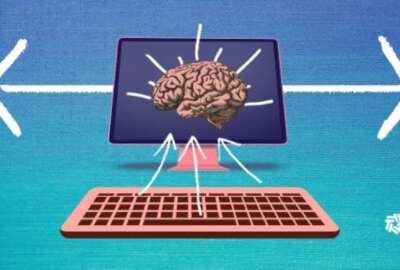SBA looking to accelerate AI breakthroughs as part of ‘customer-centric’ transformation
The Small Business Administration is stepping up efforts to ensure startups have access to the capital they need to accelerate breakthroughs in artificial...
The Small Business Administration is stepping up efforts to ensure startups have access to the capital they need to accelerate breakthroughs in artificial intelligence – especially in matters of national security.
Bailey DeVries, director of SBA’s Office of Investment and Innovation, said the agency is doubling down on efforts to support small firms that are pushing the boundaries of AI research as part of a “customer-centric” transformation at the agency.
“There is a big buildout in the agency to have a more customer-centric view and more customer-centric support. That means connecting the dots broadly across programs,” DeVries said last Thursday during a webinar hosted by the Bipartisan Policy Center. “That requires a lot of funding, and that’s a different world than we’ve operated in the past – and one that will create many efficiencies if we’re able to invest in those improvements and enhancements for the agency.”
DeVries said many startups and innovation hubs currently are struggling to obtain the same level of access to funding they saw in recent years, after the recent collapse of longtime private-equity backers, including Silicon Valley Bank.
“The opportunity for those businesses now to get a low-cost government-guaranteed loan from a wide network of lenders in communities and regions and nationally could be transformative — absolutely transformative— particularly in a rising interest rate environment,” she said.
SBA introduced a proposed rule in April, modifying the affiliation and lending criteria for SBA business loan programs – including its 7A working capital Loan program and its 504 Loan program. The rule went into effect in May.
DeVries said longstanding regulation kept small businesses from receiving SBA funding if they already received private-equity funding.
“You had to have bootstrapped the business and be able to self-fund it, in order to get funds from SBA,” DeVries said. “It seems a shame that we would not provide federal loans to those businesses,” she said.
DeVries said SBA leadership sought to modify the federal regulations after realizing they prevented some AI startups from applying for SBA loans under the Pandemic Protection Program (PPP).
“What we heard is that it was wonderful that these emergency funds were able to get out to many small businesses. But we were leaving behind the innovation economy — small businesses and startups,” DeVries said.
To further accelerate federal investments in AI, SBA and the Defense Department in March launched the Small Business Investment Company Critical Technologies Initiative. The initiative is a joint effort to scale up DoD support and private investments in emerging technologies, including AI.
The partnership brings together SBA’s Office of Investment and Innovation and DoD’s recently created Office of Strategic Capital.
DeVries said the SBA’s focus on accelerating AI research funding builds on the Biden administration’s broader focus on “building trust and responsible development” of AI in and out of government.
“As they say, you’re either leading change or you’re responding to it. So we have to think about how do we lead responsibly, how do we lead where it’s not just a few making all the decisions, but that we are thinking broadly about the needs of different stakeholders – around how do we remove biases [and] how do we ensure that we are collecting truth and fact and using that to make informed decisions and using that information to make informed decisions in all of our programs.”
DeVries said SBA also recently launched a public-private partnership with the Small Business Digital Alliance to connect tech companies like Meta, Google and Microsoft with small businesses looking to adopt AI tools.
“Some of these companies are going to be focused on very discrete issues, very discrete markets. Some are going to be looking at broader opportunities and applications,” she said.
SBA’s latest efforts to support AI build on decades of the agency supporting emerging technologies through its Small Business Innovation Research (SBIR) and Small Business Technology Transfer (STTR) programs.
Both programs incentivize small businesses to participate in federal research and development projects and support the commercialization of cutting-edge technologies.
Nearly a dozen agencies participate in the SBIR and STTR programs.
“The key is that we have to figure out how to advance the technology responsibly, so the objectives are clear, that it is not benefiting a few, that we are considering the needs of communities and stakeholders broadly — that biases are not built into systems. it’s incredibly important that we figure out a governance framework so that way there can be trust,” DeVries said.
DeVries said most AI use cases today augment the work of employees, and require a human in the loop to remain accurate and effective, she added that AI has the potential to eliminate some jobs — as well as create new ones.
“It would be insensitive to say, ‘Oh gosh, this would not lead to any job loss.’ Throughout history, we’ve seen that certain types of jobs have been replaced, but consistently – again and again – what we have seen is that as we see technology improvements, if human beings, governments and corporations make the right choices about the use of technology and how to govern it, and to what objective they’re using, it leads to more inclusive equity,” she said.
“It leads to opportunities for people to develop skills, create new companies, create new job opportunities through these advancements, so that through generations, we see new opportunities presented for the next generation that did not exist before,” she added.
Copyright © 2025 Federal News Network. All rights reserved. This website is not intended for users located within the European Economic Area.
Jory Heckman is a reporter at Federal News Network covering U.S. Postal Service, IRS, big data and technology issues.
Follow @jheckmanWFED






